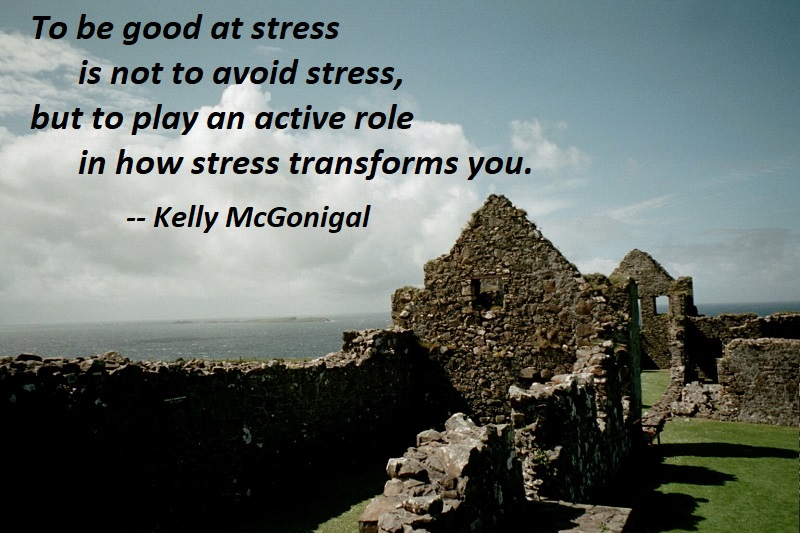Good at Stress
Embracing stress is an act of bravery, one that requires choosing meaning over avoiding discomfort.
This is what it means to be good at stress. It’s not about being untouched by adversity or unruffled by difficulties. It’s about allowing stress to awaken in you these core human strengths of courage, connection, and growth. Whether you are looking at resilience in overworked executives or war-torn communities, the same themes emerge. People who are good at stress allow themselves to be changed by the experience of stress. They maintain a basic sense of trust in themselves and a connection to something bigger than themselves. They also find ways to make meaning out of suffering. To be good at stress is not to avoid stress, but to play an active role in how stress transforms you.
— Kelly McGonigal, The Upside of Stress, p. 94
[Photo: Dunluce Castle, Ireland, July 2001]

